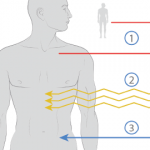In 2017, Dr. Hilkens and colleagues published a phase 1 study of intra-articular tolerogenic dendritic cells in patients with inflammatory arthritis and determined that such therapy appears safe and feasible in practice.3 This study was related to prior work by another research team that studied the safety and clinical effects of autologous dendritic cells modified with a nuclear factor κB (NF-κB) inhibitor exposed to four citrullinated peptide antigens. These cells were injected intradermally into 18 human leukocyte antigen genotype-positive RA patients with citrullinated peptide-specific autoimmunity. The study found such an injection to be safe and associated with a reduction in effector T cells, an increased ratio of regulatory to effector T cells and decreased serum concentrations of several cytokines.4
Imaging
The session’s next speaker was I. Jolanda M. de Vries, PhD, a professor in the Department of Tumor Immunology, Nijmegen Centre for Molecular Life Sciences, The Netherlands. Her talk focused on the important role of imaging in tracking cell-based therapies.
Dr. de Vries and others have noted that the success of cellular therapies depends a great deal on the accurate delivery of cells to target organs, such as delivery and subsequent migration of dendritic cells to regional lymph nodes to effectively stimulate the immune system. Therefore, it’s important that researchers and clinicians have the ability to track dendritic cells in the body.
Magnetic resonance imaging (MRI), position emission tomography/single photon emission computed tomography (PET/SPECT), bioluminescence/fluorescence imaging and multimodal imaging have all been used in pre-clinical studies for the purposes of tracking dendritic cell-based therapies, but transfer to clinical practice has remained scant.5,6 Dr. de Vries noted this is an important area of needed growth because in vivo imaging can serve as a drug development tool to improve the understanding of mechanisms of action for treatments, predict efficacy by stratifying patients into probable responders and non-responders to treatment, and serve as a non-invasive means to identify potential loss of efficacy or resistance to treatment.7
To date, much of the work on in vivo tracking of cellular therapies has been conducted in the field of oncology, but it’s clear these tools will also be valuable as applied to therapeutics for autoimmune diseases.
Implications for Rheumatology
The session concluded with two abstract presentations that described the application of dendritic cell therapy to rheumatologic disease.
Victoria Werth, MD, professor of dermatology, the Hospital of the University of Pennsylvania and the Veteran’s Administration Medical Center, Philadelphia, presented a study of BIIB059, a humanized monoclonal antibody targeting BDCA2 on plasmacytoid dendritic cells, in patients with active cutaneous lupus erythematosus. In a randomized, placebo-controlled trial of 132 patients with active cutaneous lupus erythematosus, subacute cutaneous lupus erythematosus or chronic cutaneous lupus erythematosus, BIIB059 demonstrated a significant reduction in Cutaneous Lupus Erythematosus Disease Area and Severity Index (CLASI) A scores compared with baseline. BIIB059-treated patients were also more likely to achieve CLASI-50 and a greater than 7 point reduction in CLASI-A scores from baseline compared with placebo. The study also demonstrated a significant dose-response relationship with no significant safety concerns.
